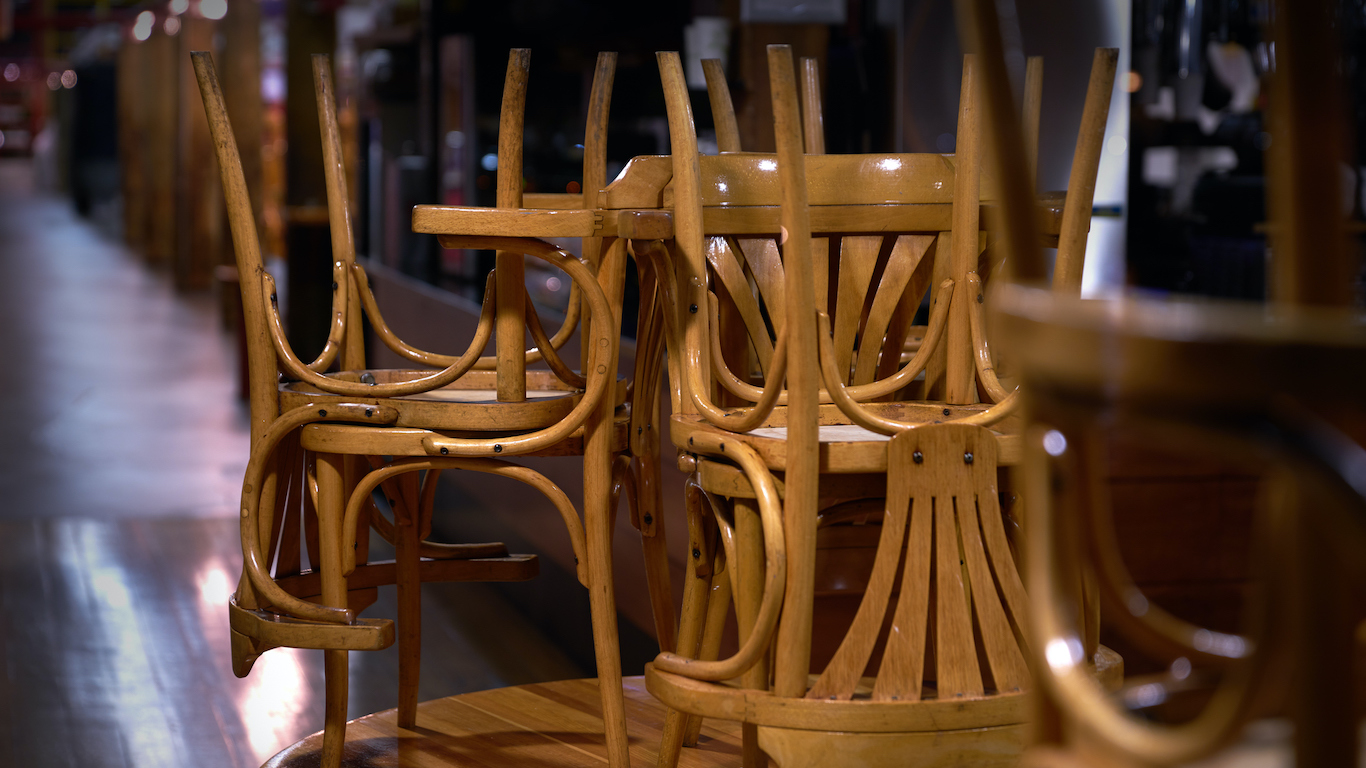
Many thousands of restaurants around the country close every year, from fast-food outlets to acclaimed fine-dining venues. It’s the nature of the business. Rising rents, legal struggles of various kinds, and changing tastes all take their toll. Other times, proprietors close down because they want to move on to new projects — like other, less demanding restaurants or different lines of work altogether — or they just age out of this strenuous line of work and opt for retirement.
That’s in a normal year. While all these factors might still figure into many of the restaurant closures in 2020, the single most destructive force by far has been, of course, the COVID-19 pandemic (though a few of the places on the list of restaurant closures below closed for unrelated reasons).
Across America, mandated shutdowns or limits on capacity have decimated the restaurant business. Establishments that were able to maintain some semblance of profitability in warmer months through expanded outdoor dining are succumbing to the chill of colder weather. Though the particulars change weekly, this is a recent rundown of the restaurant reopening restrictions in every state.
Even those places that are able to remain open are suffering from a lack of diner confidence. Dining out, especially indoors, just seems too dangerous to many, so they stay home or order food to be delivered (which often costs substantial fees for the restaurants they order from). Whatever other challenges restaurateurs might ordinarily face, the pandemic has made everything worse. (The Centers for Disease Control and Prevention has published these considerations for restaurant and bar operators.)
Some of America’s most famous restaurants have fallen victim to the crisis, including the influential K-Paul’s Louisiana Kitchen in New Orleans, Manhattan’s legendary “21” Club, and the 99-year-old Pacific Dining Car in Los Angeles. So have beloved neighborhood standbys that have served their communities for generations, like John’s Famous Stew in Indianapolis (est. 1911) or the Highland Park Cafeteria in Dallas (est. 1935). Newer places run by celebrity chefs aren’t immune either — see McCrady’s in Charleston and Blackbird in Chicago.
Click here to see the saddest restaurant closings of 2020.
Since the pandemic first started raging across the country, 24/7 Tempo has tracked the permanent closures of significant restaurants in every corner of the nation. Most recently, we surveyed the scene in some 26 states and the District of Columbia to assemble a list of the 50 most popular restaurants that have closed permanently due to the pandemic.
Of the hundred-plus establishments we’ve covered, some will be particularly sorely missed — places that set standards of culinary excellence and/or became vital parts of their communities, whether those communities were rural Texas or midtown Manhattan, helping to define and nourish them.
The disappearance of almost any restaurant is an unfortunate occurrence, but these are the year’s saddest examples.
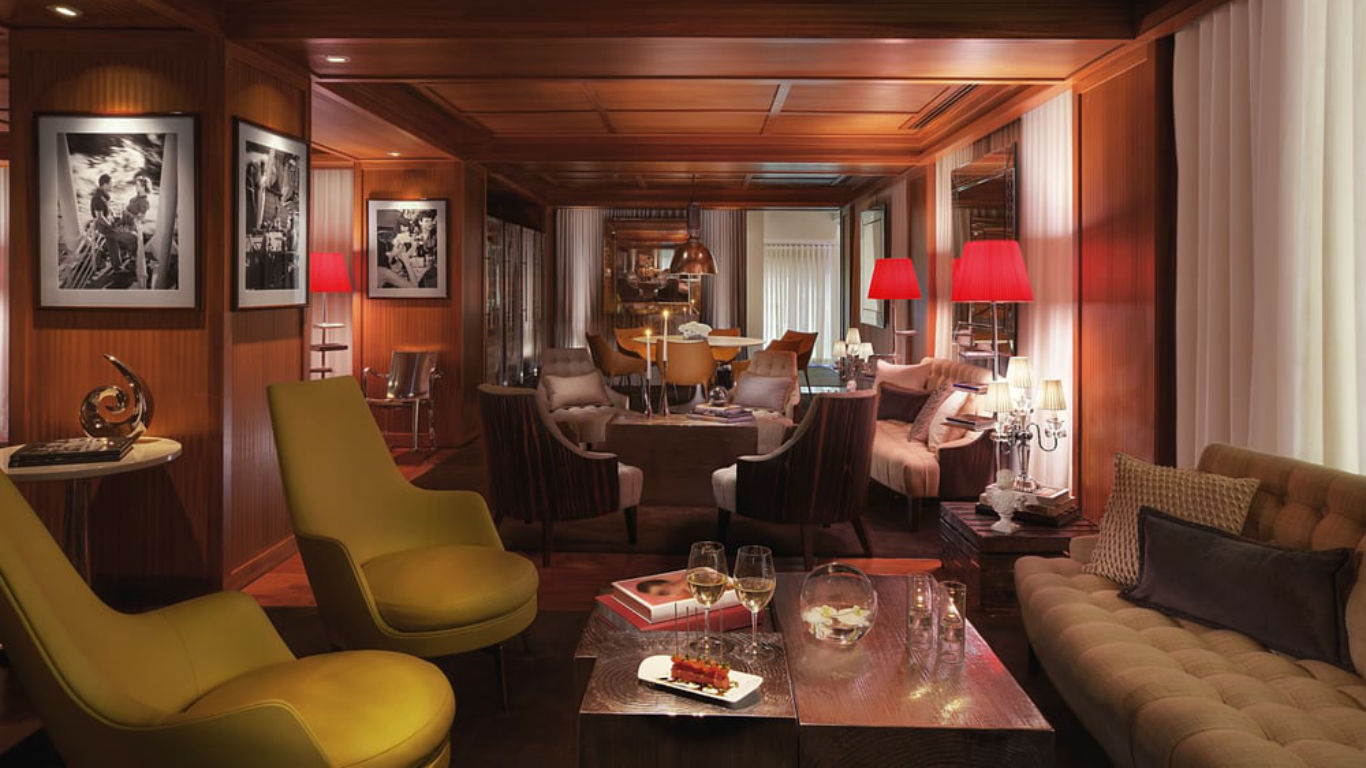
California: The Bazaar by José Andrés and Somni
> Location: Los Angeles
ThinkFoodGroup, the restaurant and food product company helmed by celebrated Spanish chef-restaurateur and humanitarian José Andrés, announced in early August that it was bowing out of its sole California operation — the two restaurants in the SLS Beverly Hills hotel. The two — The Bazaar by JJosé Andrés and Somni, a 10-seat modernist tasting-menu counter operation (one of the few L.A. restaurants with two Michelin stars) — closed amidst legal actions between the hotel and ThinkFoodGroup. While the shutdowns weren’t directly related to the pandemic, the company issued a statement noting that the hotel had alleged “defaults that were obviously incapable of being cured while our employees lived through shelter-in-place orders.”
[in-text-ad]
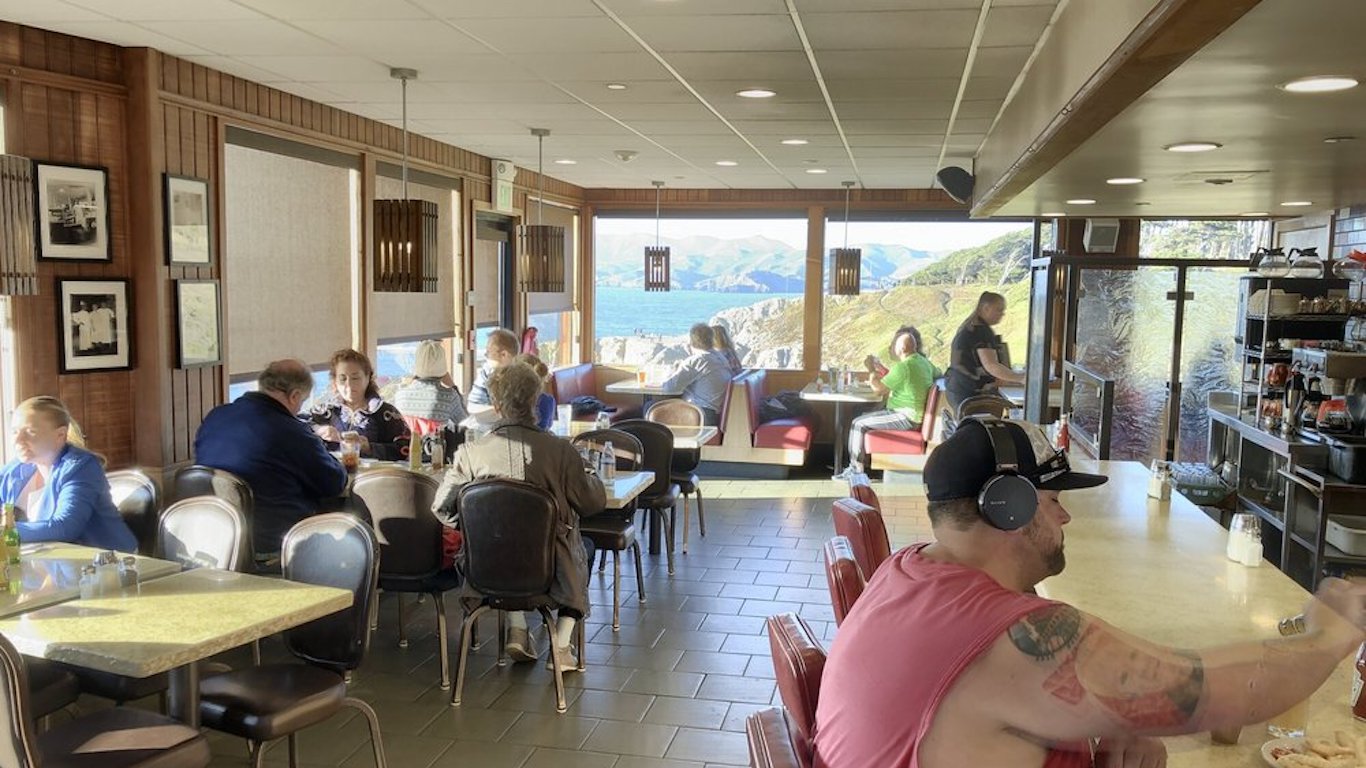
California: Louis’
> Location: San Francisco
This San Francisco institution, a diner noted for its baked goods and its use of local produce, opened in 1937 above the remains of the historic 1894-vintage public swimming complex called Sutro Baths. The owners — grandchildren of the founders — posted a message on the restaurant’s Facebook page in July, announcing that “After much deliberation and a lot of tears we have decided after 83 continuous years of business … to close our business permanently.”
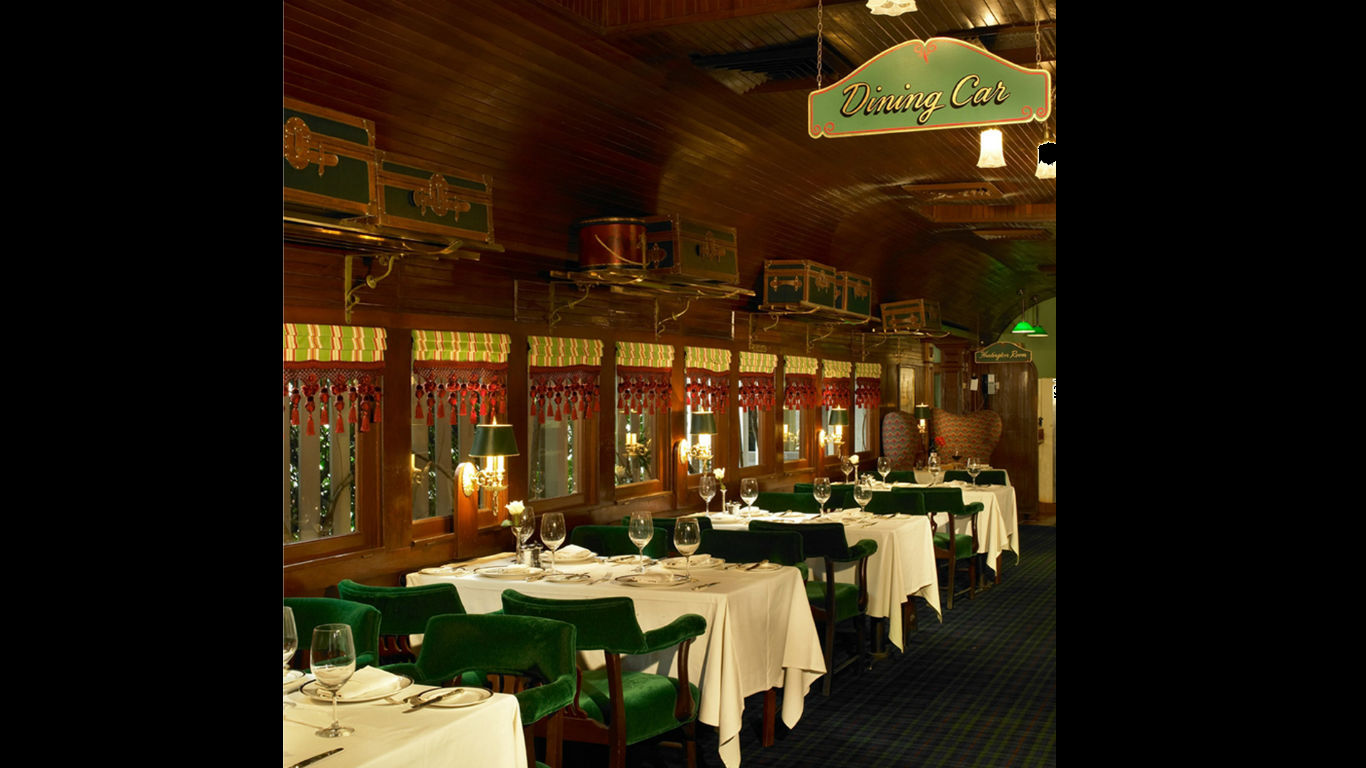
California: Pacific Dining Car
> Location: Los Angeles
Founded in 1921 in downtown Los Angeles and open 24 hours a day, seven days a week, ever since, this steakhouse was famous for its celebrity clientele and its lack of dress code (anything from black tie to beachwear was acceptable). In September, though, a statement appeared on the restaurant’s website saying “We’re taking a beat to assess what next steps are regarding COVID-19 city mandates.” This may not sound definitive, but Dining Car’s furniture, equipment, and memorabilia were sold off at auction. However, owner Wes Idol subsequently left open the possibility that the place might reopen at some future point. (The restaurant’s younger sibling, a 30-year-old offshoot in Santa Monica had already closed in June.)
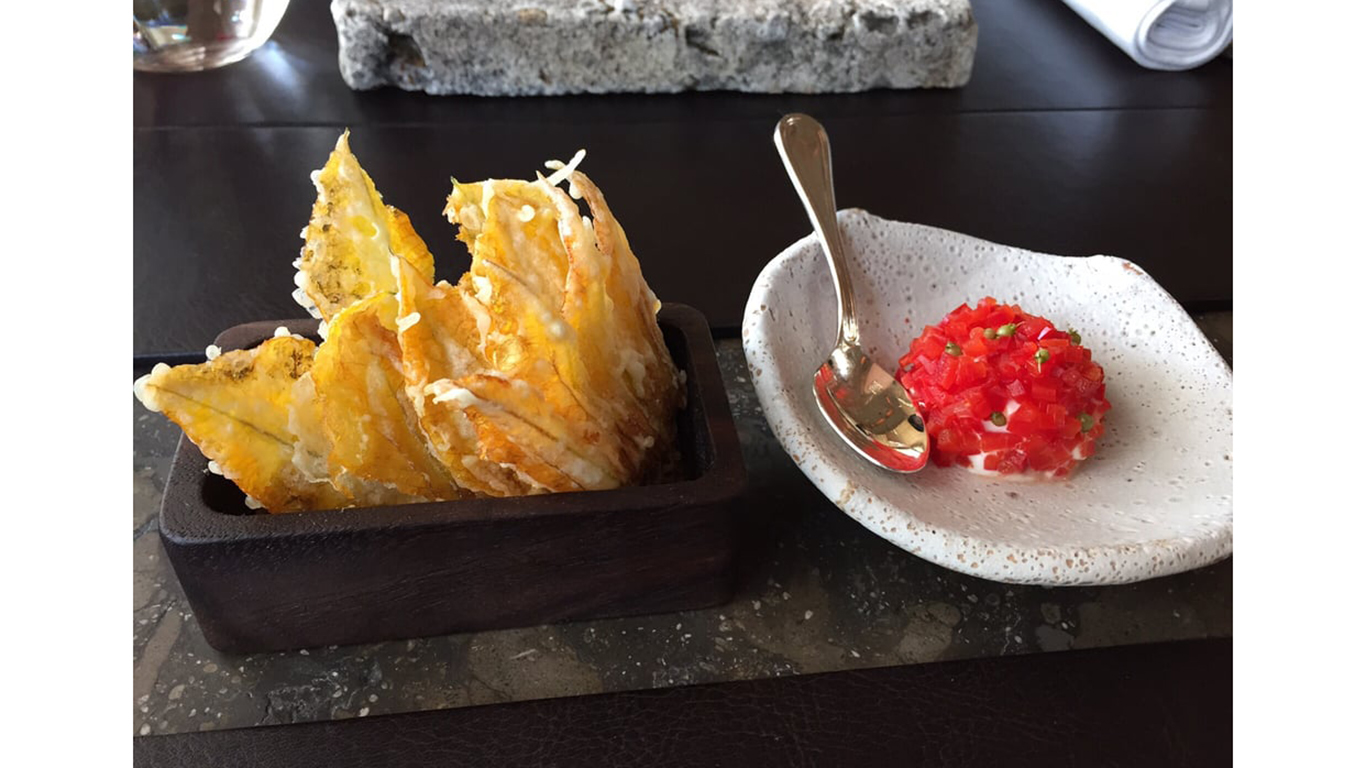
California: The Restaurant at Meadowood
> Location: St. Helena
This elegant Michelin-three-star establishment in the Napa Valley, part of the posh Meadowood resort complex, is one of the few recent high-profile restaurant closures that can’t be blamed on COVID-19. In late September, the restaurant was burned to the ground by the Glass Incident Fire that devastated wine country. This won’t be permanent, however, as plans are underway to build a new restaurant on the property. Meanwhile, chef Christopher Kostow will set up shop in January and February at the Ojai Valley Inn in Southern California.
[in-text-ad-2]
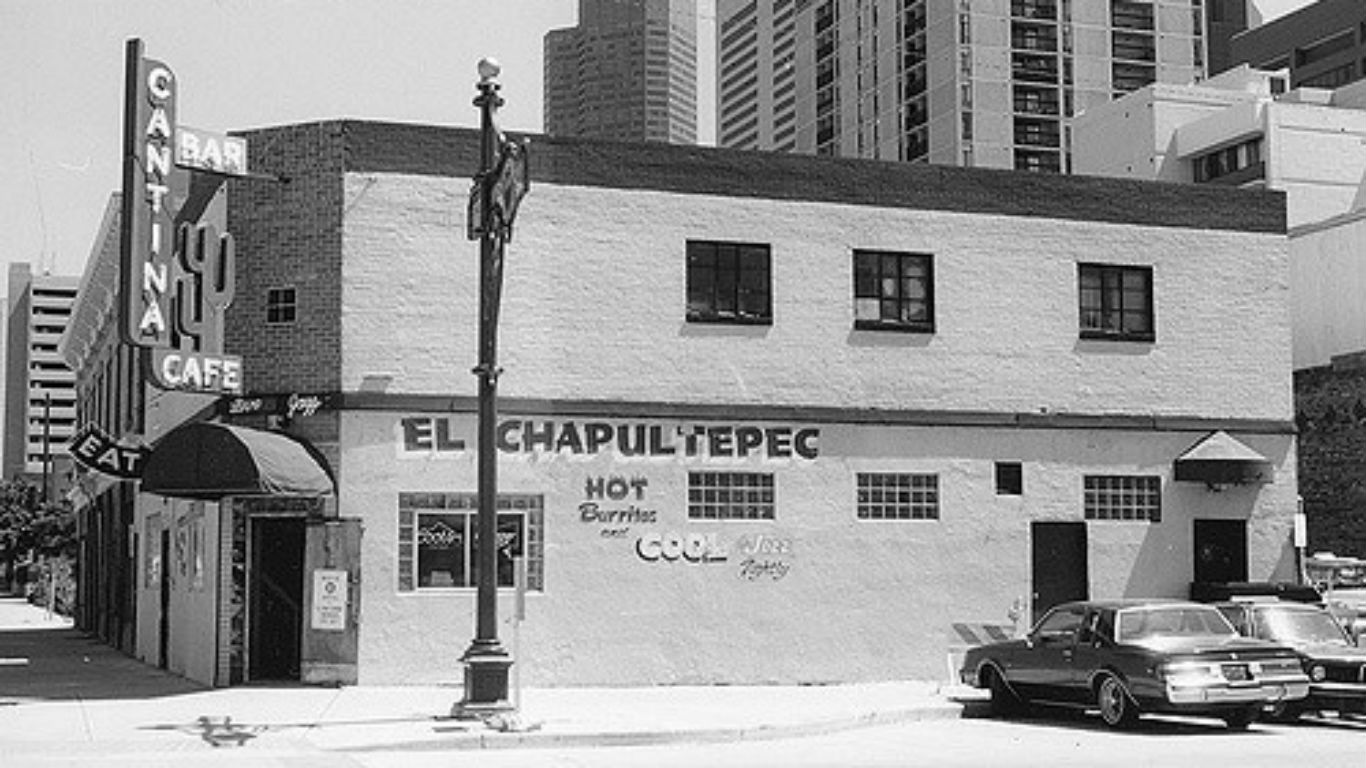
Colorado: El Chapultepec
> Location: Denver
This iconic 87-year-old Denver bar, jazz club, and restaurant was better known for its music — Frank Sinatra, Count Basie, Wynton Marsalis, and even a sometime saxophonist named Bill Clinton all appeared on stage here — than for its food. Nonetheless, it served an ample menu of Mexican dishes and burgers to accompany the drinks and sounds. The place had been struggling financially since earlier this year, but in early December the owners announced that they were pulling the plug. “The decision was multifactorial,” they wrote on their Facebook page.
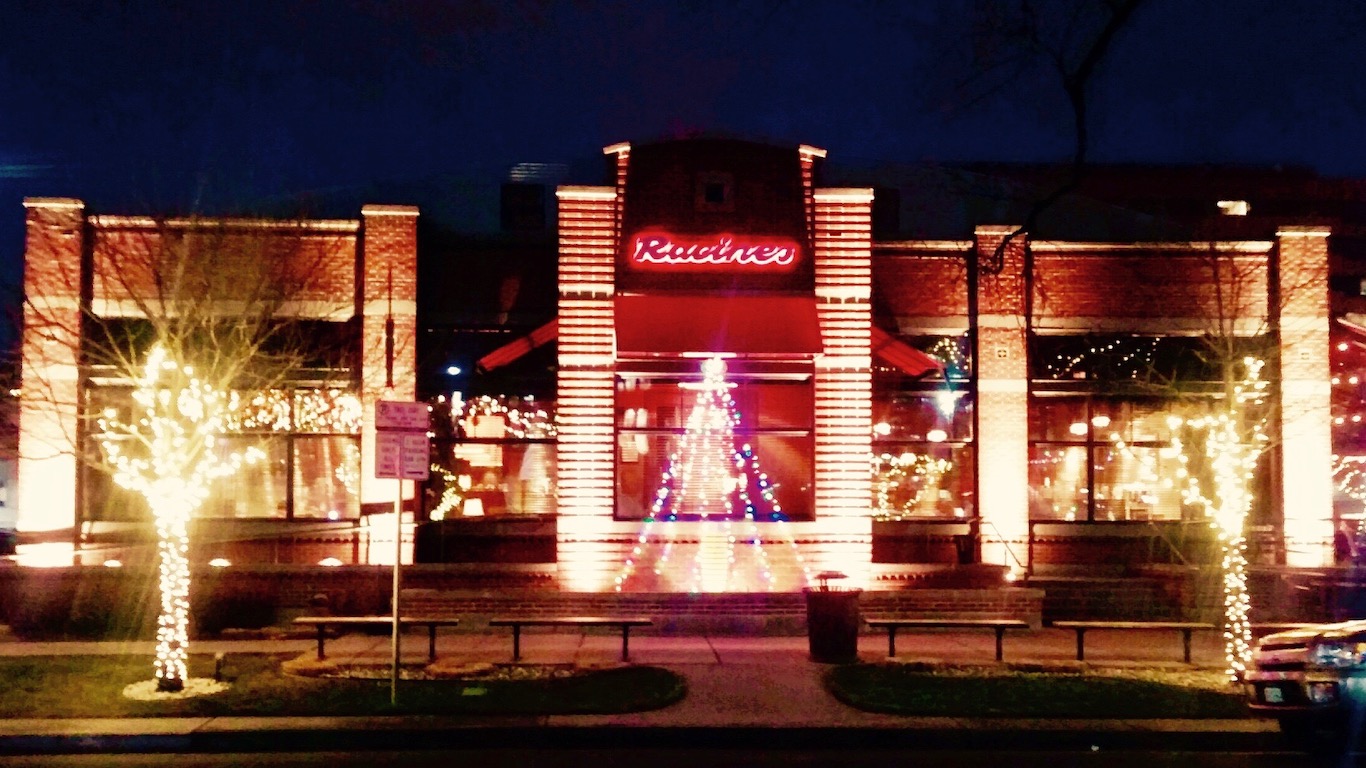
Colorado: Racine’s
> Location: Denver
Billing itself as “Denver’s favorite breakfast, lunch, brunch, dinner & late night place since 1983,” Racine’s didn’t exactly close as a result of the pandemic, but the pandemic hurried things along. The owners had already made a deal to sell their building and the land it stood on to a developer before the advent of COVID-19. When the restaurant closed in March in response to the crisis, the original plan was to reopen as soon as possible, even if it was only for a few months before the sale. Circumstances caused the owners to change their minds, however, and in mid-July they reported on Facebook that they had “decided not to reopen Racines,” adding “there is just too much working against us.”
[in-text-ad]
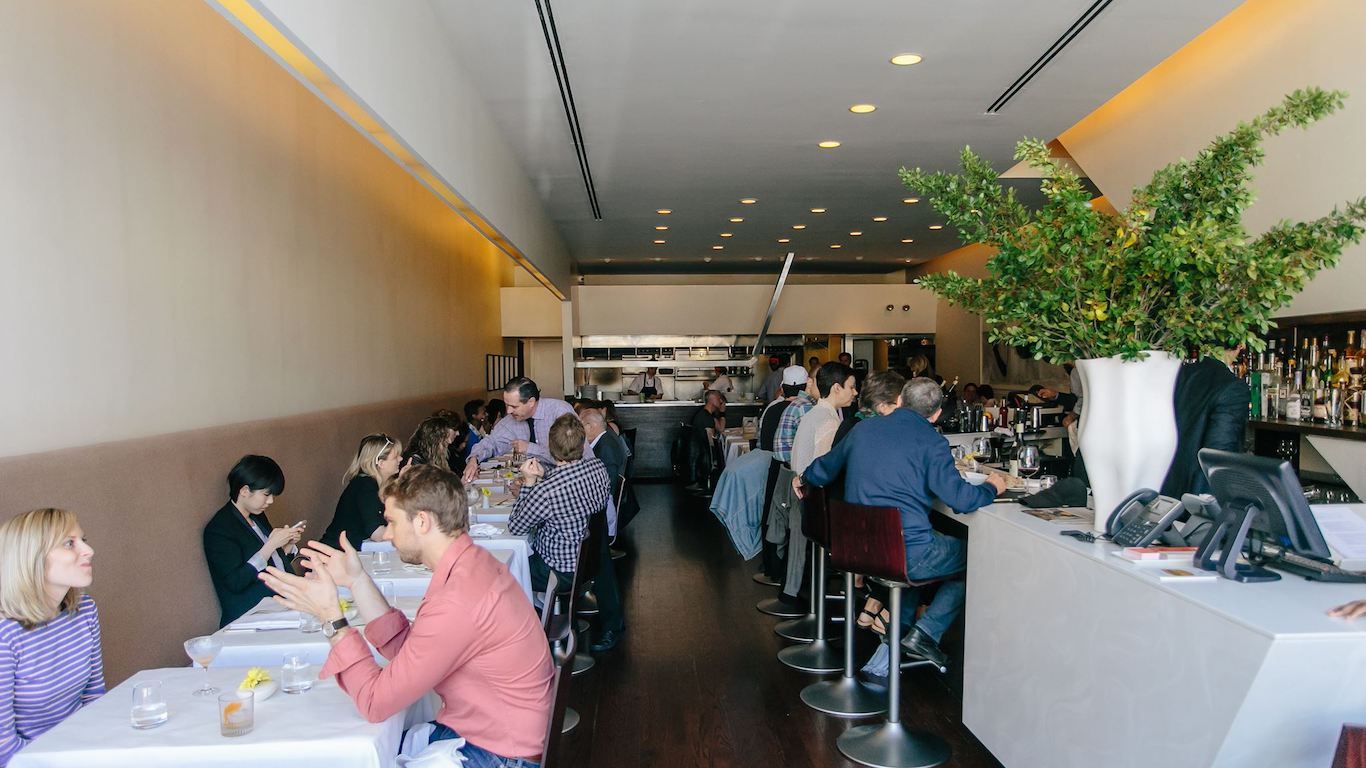
Illinois: Blackbird
> Location: Chicago
Hailed by the Chicago Tribune as “one of Chicago’s greatest restaurants,” this popular West Loop establishment was opened 22 years ago by Paul Kahan, who went on to become one of the city’s best-known chef-restaurateurs. (His other places include Avec, Publican, and Big Star). Blackbird’s intimate size and layout made social distancing impossible when COVID-19 strictures were put into place, and the restaurant announced on its website, “we have made the very difficult decision to close our doors.”
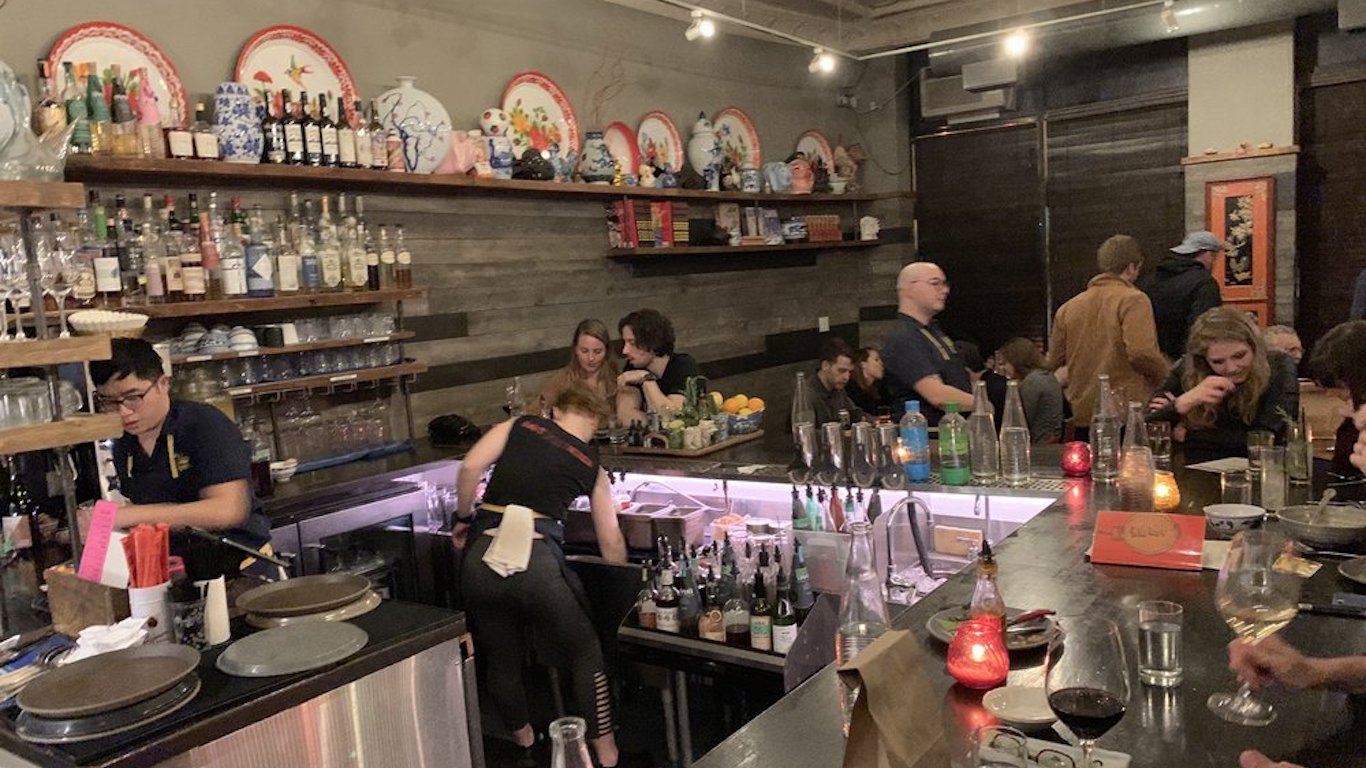
Illinois: Fat Rice
> Location: Chicago
With a James Beard Best Chef Award for chef-proprietor Abe Conlon and a Bib Gourmand rating in the Guide Michelin (signifying “good quality, good value cooking”), this popular restaurant, featuring the Portuguese-Chinese fusion cooking of Macau, was a star of the Chicago restaurant scene. Facing COVID-19, however, it phased out restaurant service in April, converting itself to the Super Fat Rice Mart, which sold specialty groceries and meal kits. In June, that operation shut down indefinitely — not due to COVID-19 but following accusations by former employees of abusive behavior and racist remarks on Conlon’s part.
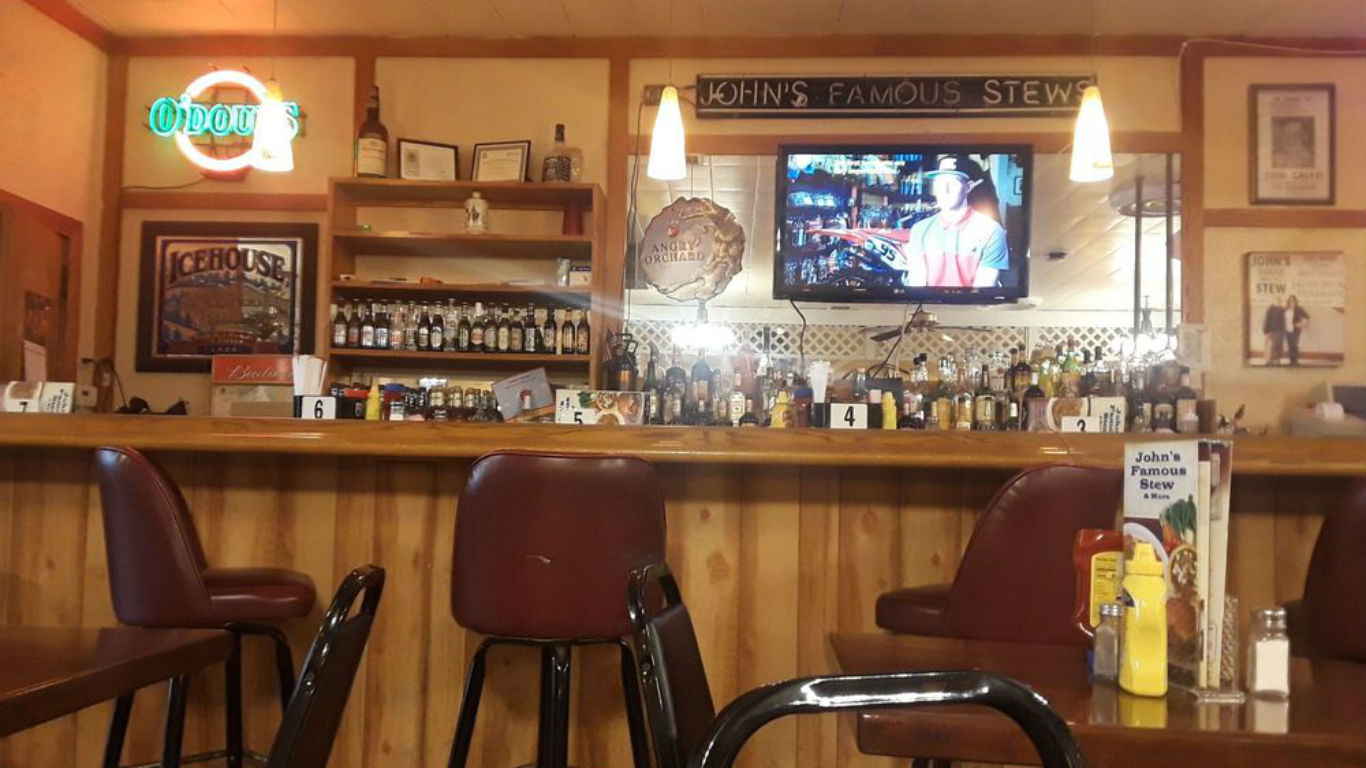
Indiana: John’s Famous Stew
> Location: Indianapolis
The menu at this Indianapolis standby, opened in 1911 by two immigrant brothers from Macedonia, included burgers, steaks, sandwiches, chili, cabbage rolls, and much more, but stew was obviously the specialty. Based on an old family recipe, this concoction of beef, potatoes, and carrot, particularly popular in the cold Indianapolis winters, was served mild, medium, and very spicy. In July, unfortunately, owner Mary Caito decided that the financial challenges were too great and posted this on Facebook: “It is with a heavy heart I share we will not be reopening.” She holds out hope that the place will find a buyer and be able to reopen with the original recipe intact.
[in-text-ad-2]
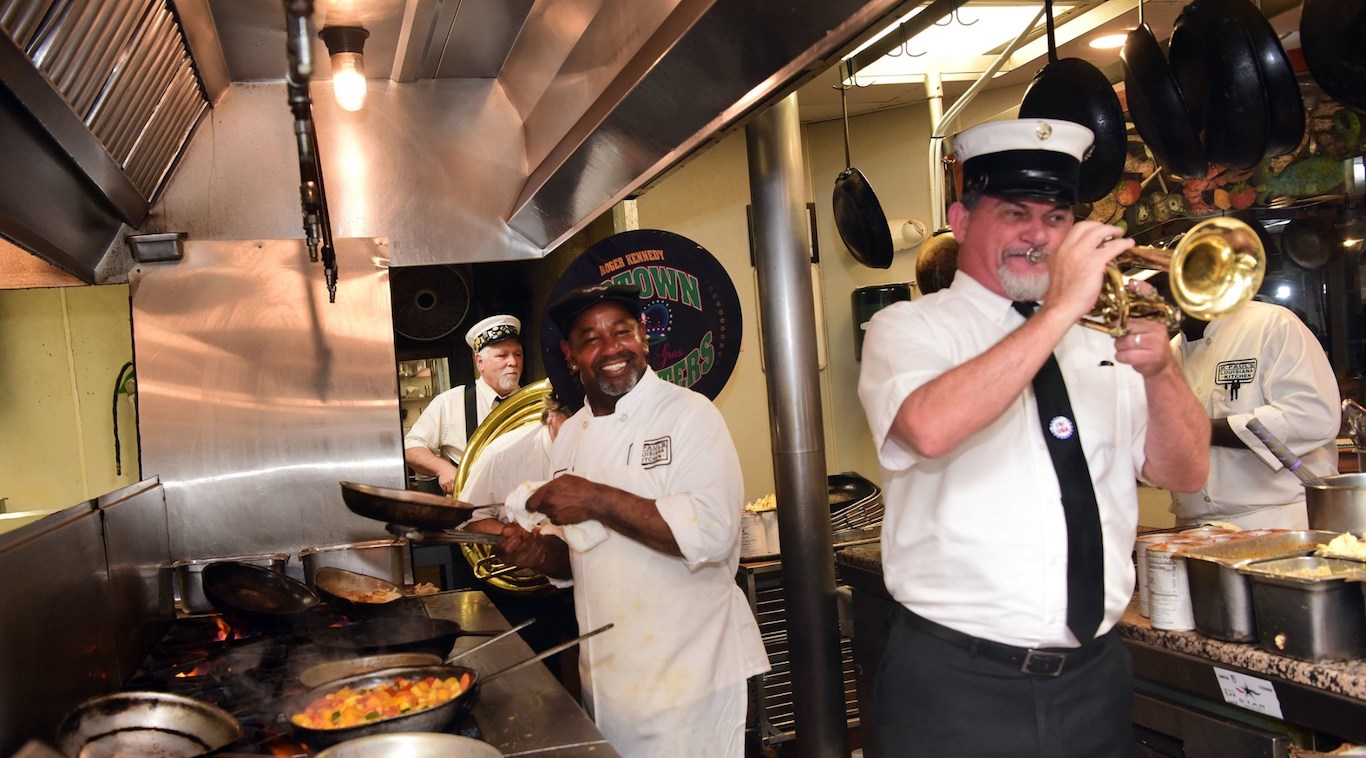
Louisiana: K-Paul’s Louisiana Kitchen
> Location: New Orleans
The legendary K-Paul’s was opened in 1979 by chef Paul Prudhomme and his wife, Kay, and quickly grew into a Crescent City bucket-list destination, with lines forming outside nightly. With such vividly flavored dishes as the iconic blackened redfish, K-Paul’s ignited a nationwide craze for Cajun cooking whose aftermath informs menus to this day. Kay died of cancer in 1993 and Prudhomme passed away in 2015, but the place stayed open under the ownership of Paul’s niece, Brenda Prudhomme, and her chef husband, Paul Miller. In mid-July, however, after enduring several coronavirus-mandated closings and reopenings, the couple issued a statement “regretfully announcing permanent closure of K-Paul’s Louisiana Kitchen.” Miller explained to NOLA.com that “The business has been bleeding through this, and you can only bleed so much before you have to stop it.”
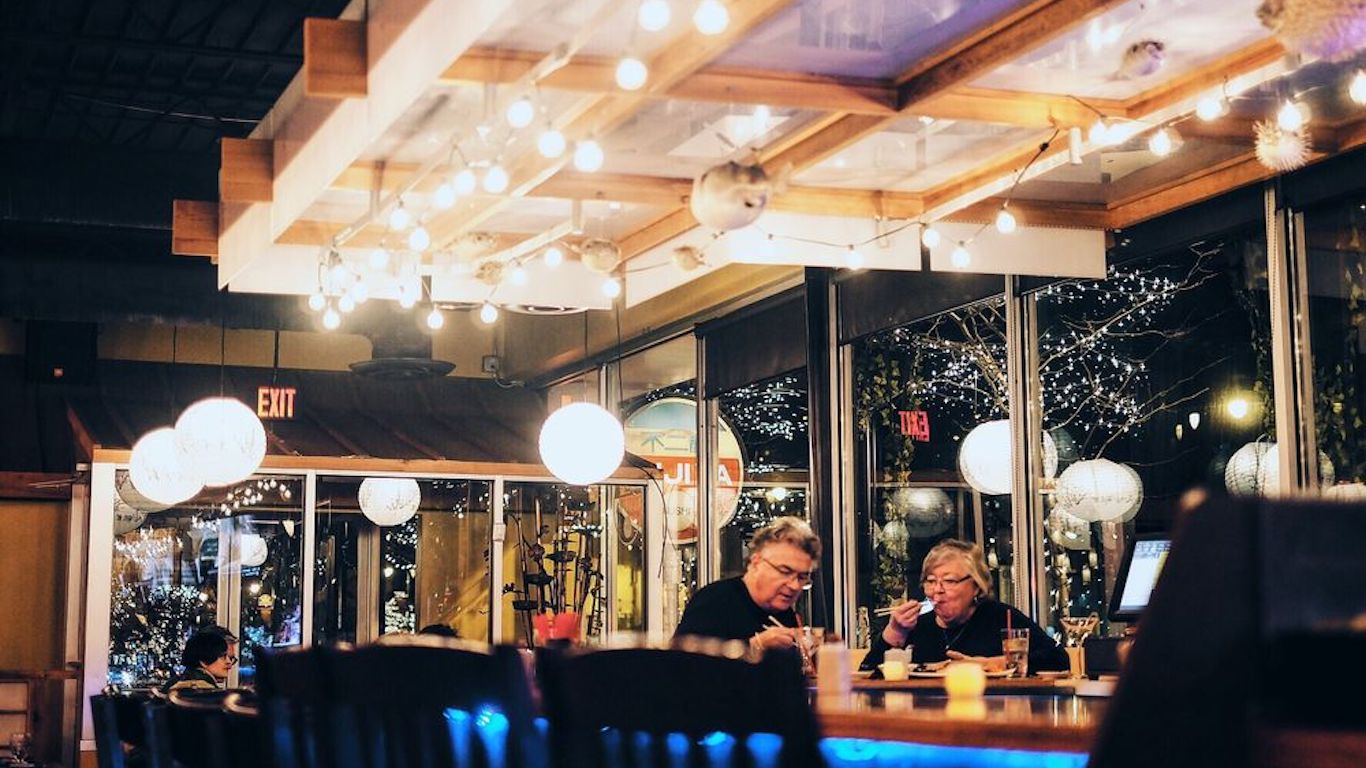
Minnesota: Fuji Ya
> Location: Minneapolis
Fuji Ya was probably the first Japanese restaurant in the entire state of Minnesota when Reiko Weston opened its doors in 1959. Over the years, it expanded and spawned offshoots, but it closed in 1990, two years after Weston’s death. In 1997, Weston’s daughter brought the place back to life and it thrived until early May of this year, when it closed again for what was supposed to be a temporary period. By the end of that month, however, the restaurant’s website was carrying the message: “Thank you for your support! Unfortunately we are closing our doors.”
[in-text-ad]
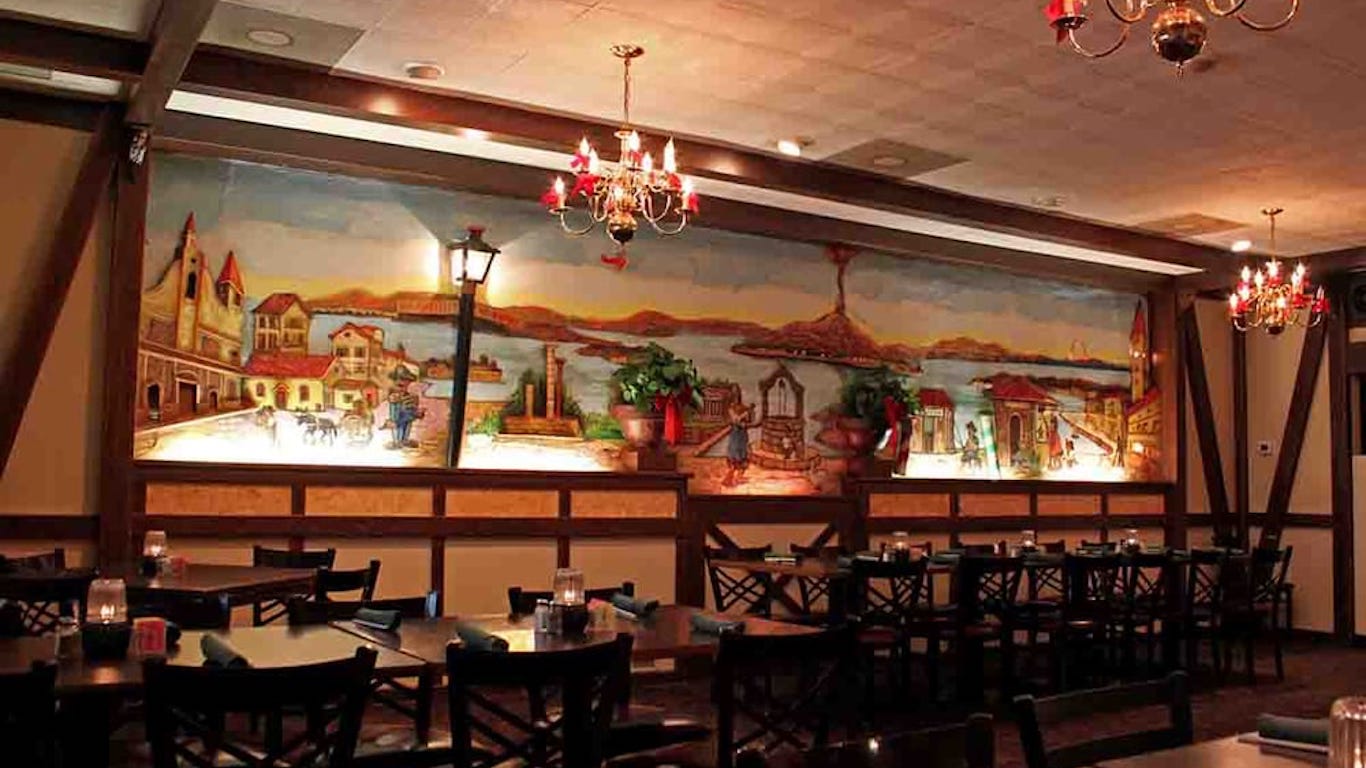
Missouri: Cusanelli’s
> Location: St. Louis
The building Cusanelli’s occupies traces its history back two centuries, but this local favorite in the city’s Lemay neighborhood — featuring what it billed as “The Original St. Louis Style Pizza” — opened a mere 66 years ago. It became a popular family destination, and comments on the restaurant’s Facebook page sentimentally recalled first dates, birthdays, anniversaries, and other momentous occasions celebrated there. It was also on Facebook that the owners announced that Aug. 30 would be the restaurant’s last night of service, “Due to covid and unforeseen circumstances.”
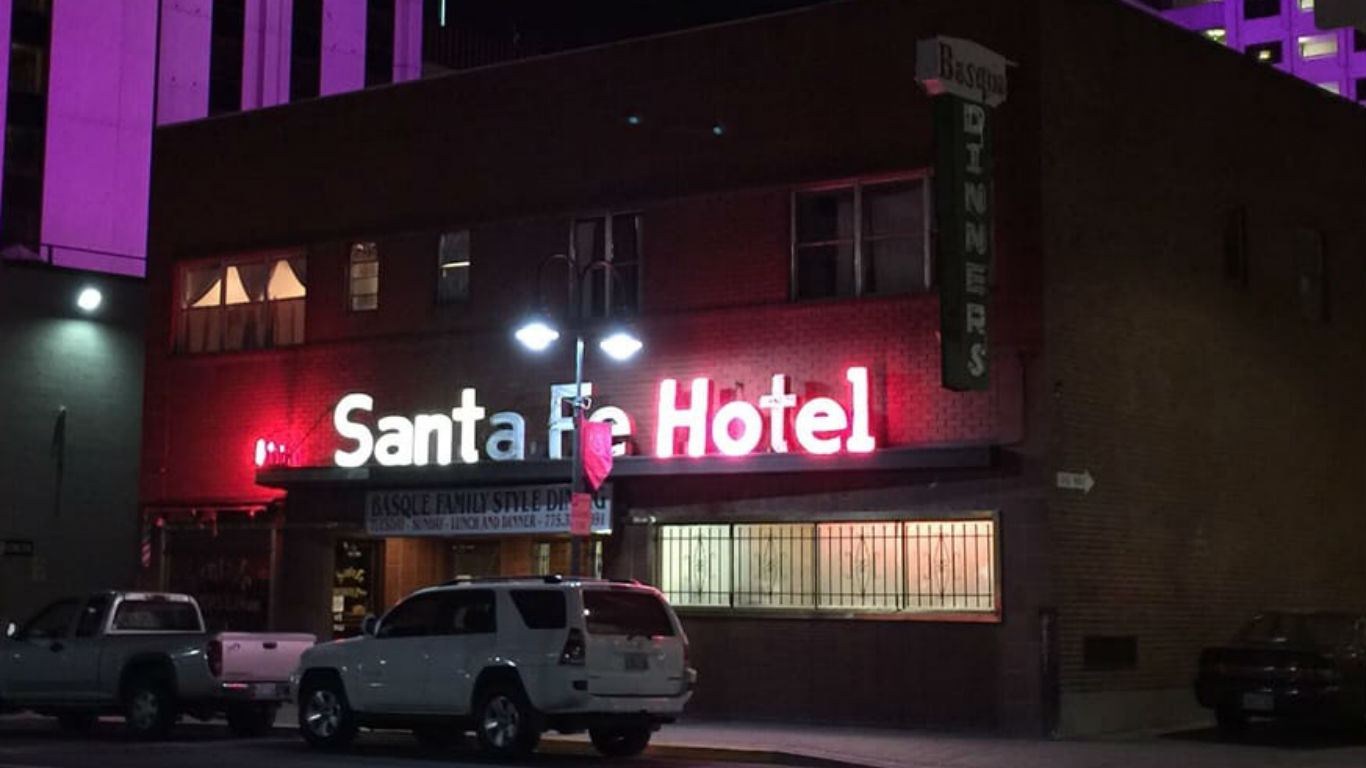
Nevada: Santa Fe Basque Restaurant
> Location: Reno
There used to be quite a few old-style Basque boarding houses/restaurants around Nevada, Idaho, and California, serving simple, hearty, multi-course meals in family-style portions. But their number is fast diminishing, and the most recent casualty is the 71-year-old Santa Fe. After closing for remodeling in 2017 and reopening last year, it seemed healthy enough. This summer, though, a message on the restaurant’s Facebook page read: “It’s official we have closed our doors. THANK YOU TO EVERYONE THAT HAS SUPPORTED US FOR THE LAST 71 YEARS. And a big thanks to all of our guests on our final night you made it an emotional yet awesome farewell.”
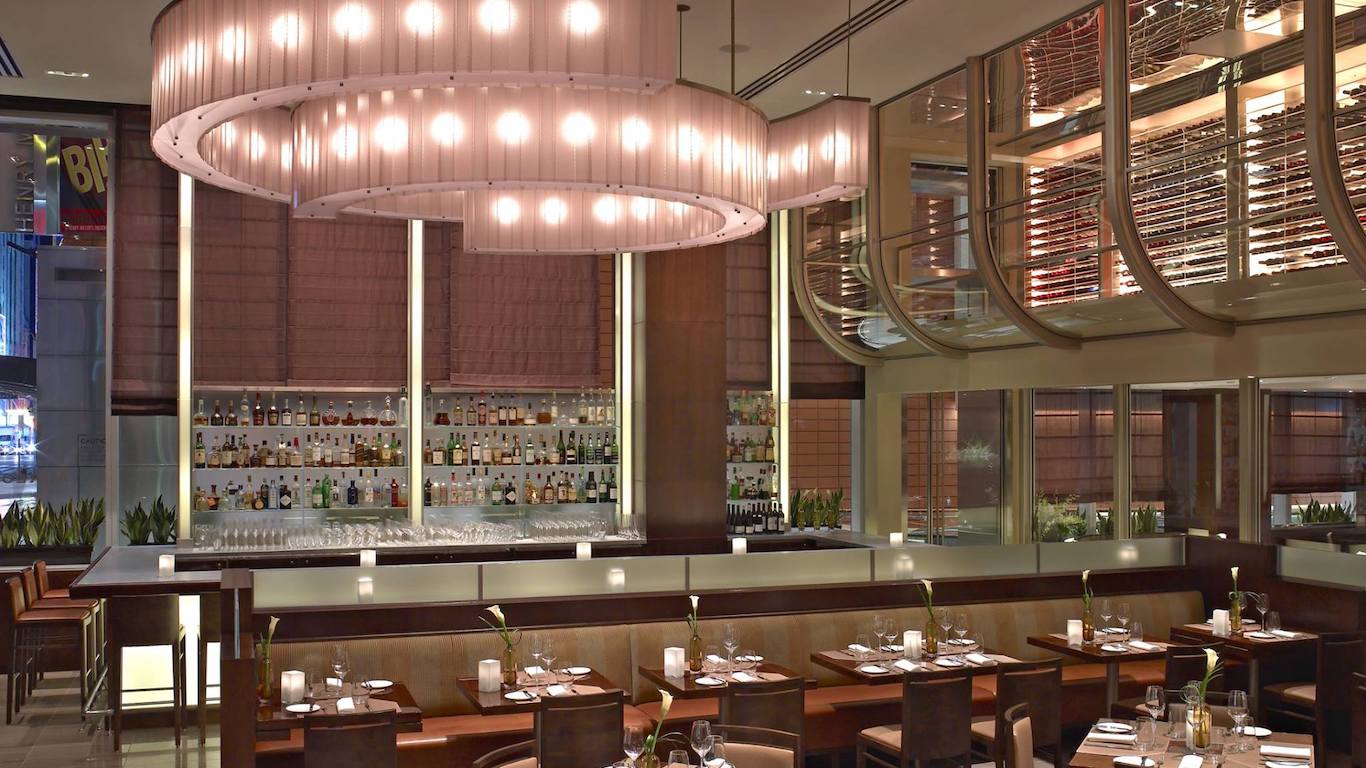
New York: Aureole
> Location: New York City
“Moving through these uncertain times and with a changing industry landscape, we remain dedicated to offering our loyal patrons the very best in American cuisine,” wrote celebrity chef Charlie Palmer in mid-June on the Aureole website. Since then, he has closed this upscale 32-year-old fine-dining venue for good. What Palmer is offering instead includes “boutique-style take-out” plus wines and craft cocktails out of the premises. An Aureole catering operation remains up and running, and Palmer plans to eventually open a steakhouse on the site, with fewer seats to meet social distancing requirements. He has also left open the possibility of launching a smaller Aureole at another location at some future time.
[in-text-ad-2]
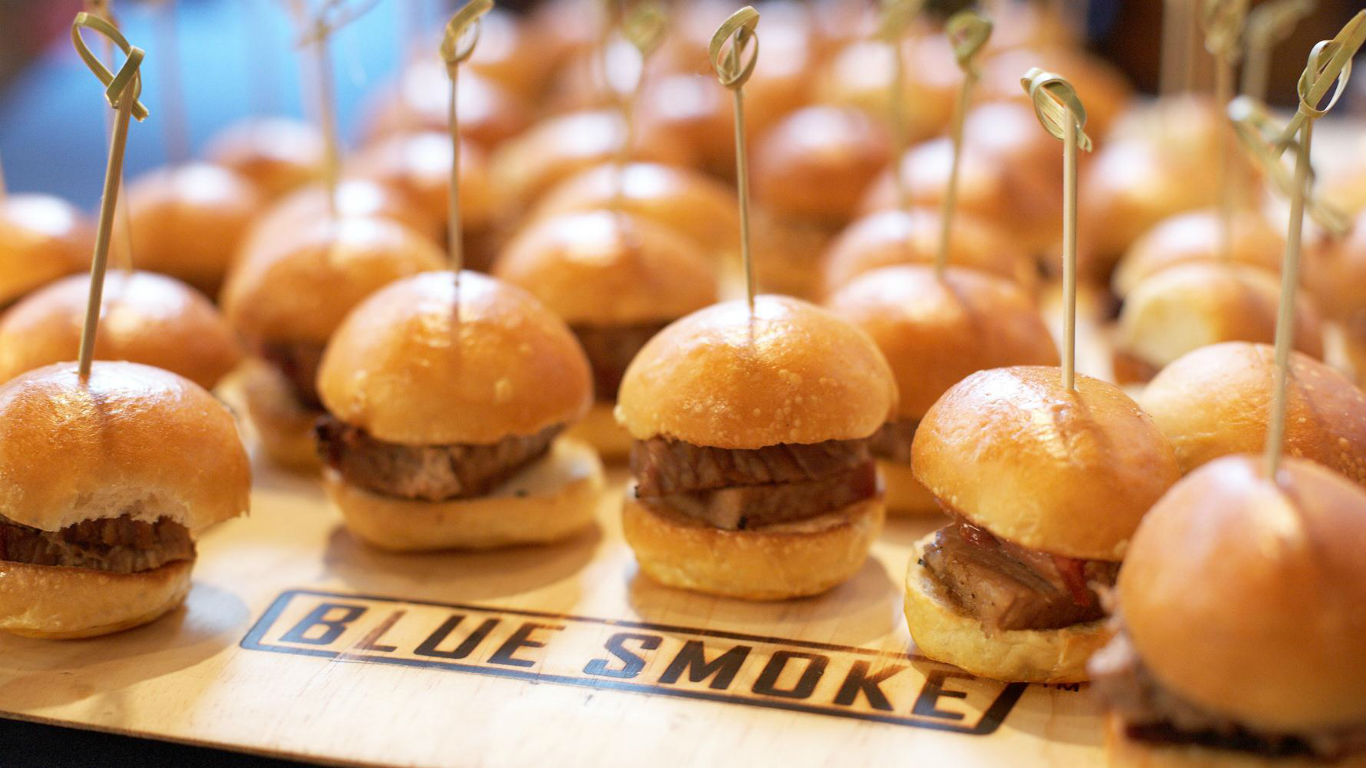
New York: Blue Smoke
> Location: New York City
Famed restaurateur Danny Meyer’s 18-year-old tribute to barbecue — credited with igniting the New York ‘cue scene — called it quits in early December. Also closed is Jazz Standard, the club downstairs from the restaurant, considered one of the city’s top jazz venues. A message on the Blue Smoke website says: “We have explored every avenue to arrive at a different outcome, but due to the pandemic and months without revenue — as well as a lengthy rent negotiation that has come to a standstill — we’ve reached the disappointing conclusion that there is no alternative but to close.” (A second Blue Smoke location, in Battery Park City, remains open.)
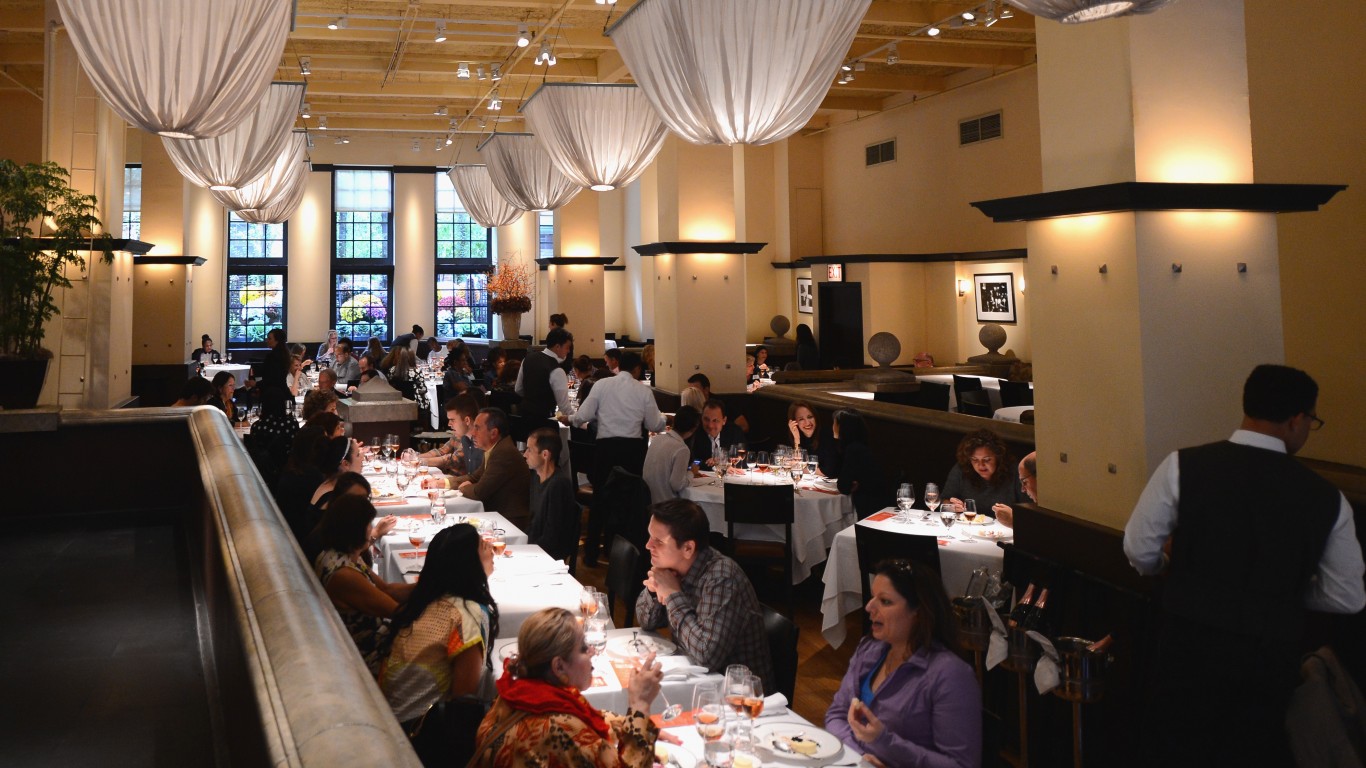
New York: Gotham Bar & Grill
> Location: New York City
One of the best-known and longest-lived New York restaurants to shut down for good in the face of the pandemic — 36-year-old Gotham had recently weathered the departure of chef Alfred Portale, the man in charge of the kitchen for the past 35 years. The new chef, Victoria Blamey, received mixed reviews, but the restaurant seemed on track to endure. Then came the pandemic. Almost immediately after it started ravaging the land, and during the second week of March the owners of the place decided to shut down. A statement by a spokesperson explained that “the unforeseen situation created by the coronavirus has made operation of the restaurant untenable.”
[in-text-ad]
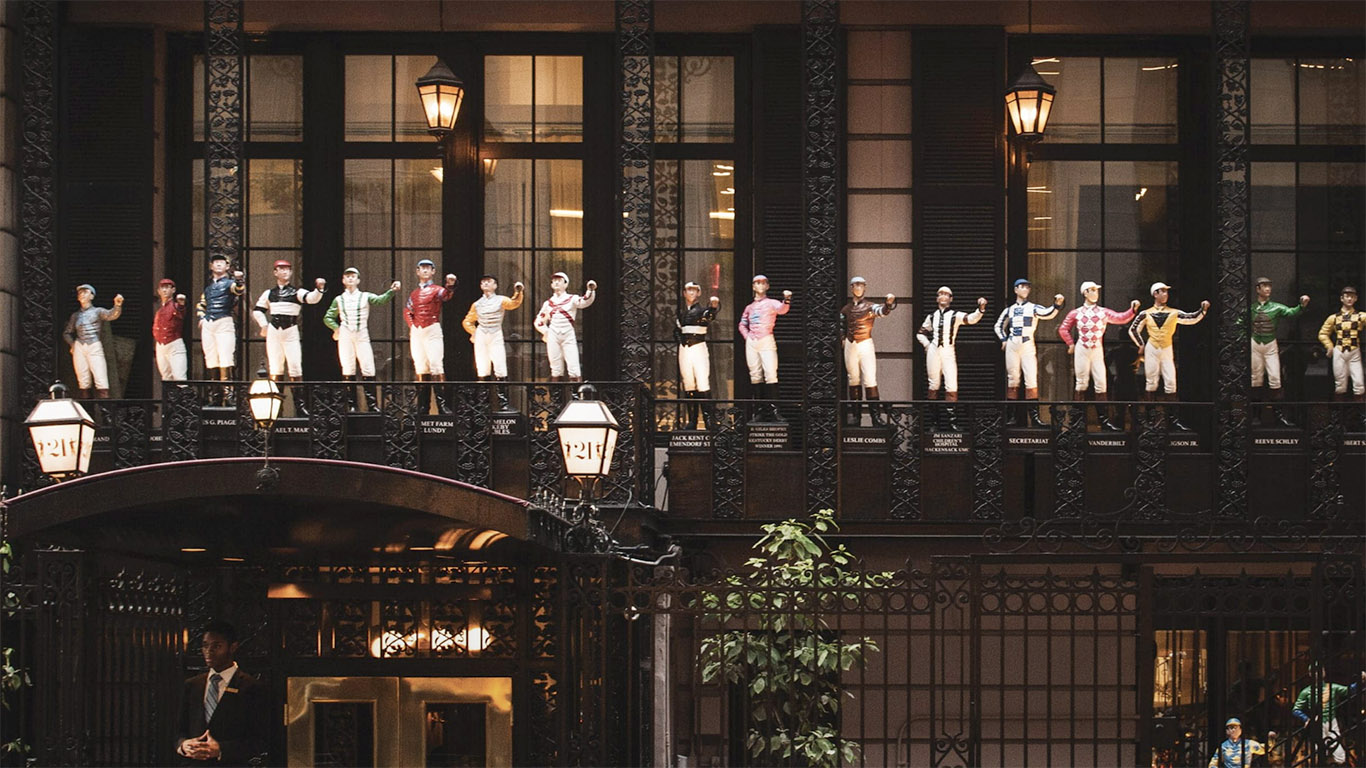
New York: The ’21’ Club
> Location: New York City
One of Manhattan’s oldest and most fabled restaurants, “21” announced on Dec. 9 that it was “indefinitely ceasing operations” and that all employees will be permanently terminated as of Mar. 9, 2021. “In light of the ongoing global crisis and anticipated extended recovery period for the hospitality industry, it has become clear that it will not be feasible to reopen this business in its current form for the foreseeable future,” according to a statement from the owners. Opened as a speakeasy in 1930, “21” became one of the city’s premier restaurants and watering holes. Famous for its wine cellar and its all-American cuisine — though the most recent chef was French — the establishment played host to every president since FDR except George W. Bush. President Donald Trump is said to have celebrated his 2016 election victory there. The non-presidential celebrity clientele included everyone from Frank Sinatra to Marilyn Monroe to Ernest Hemingway.
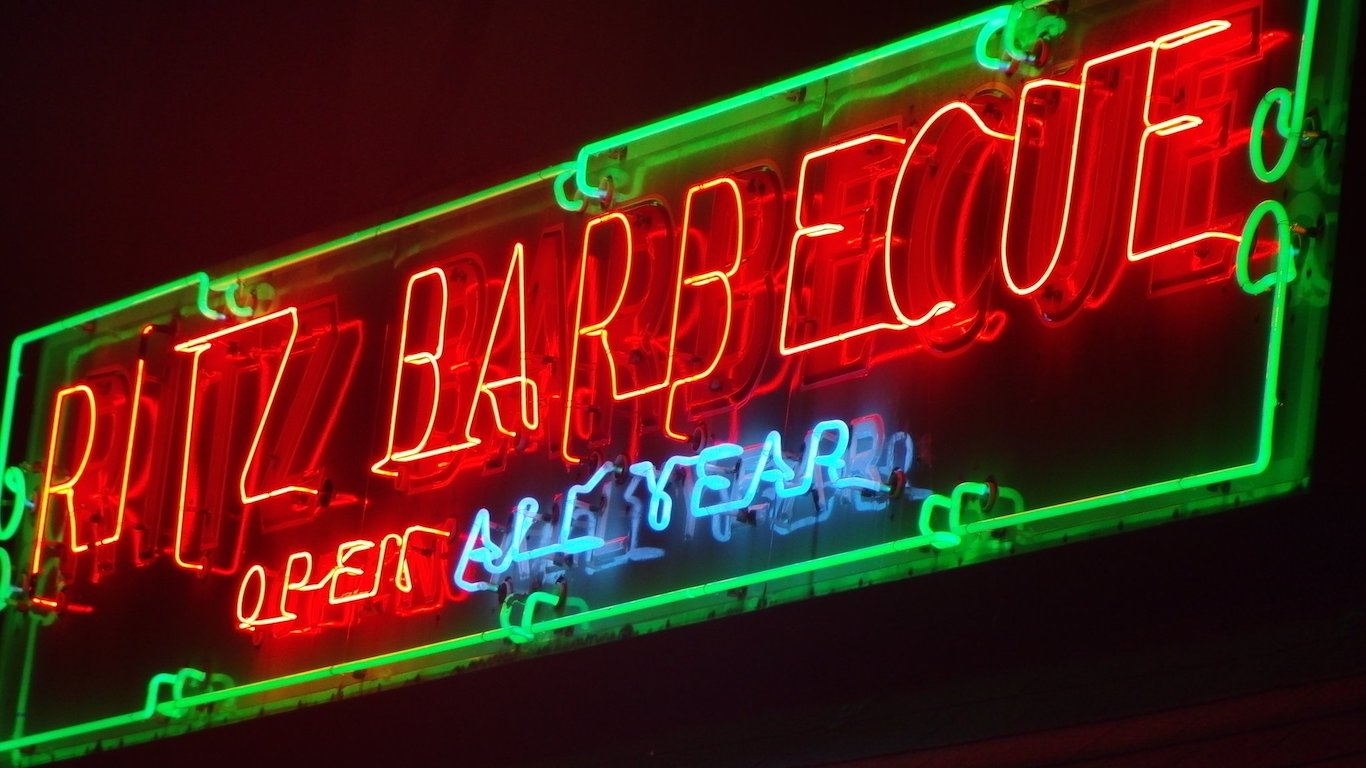
Pennsylvania: Ritz Barbecue
> Location: Allentown
“An Allentown landmark restaurant where generations of families gathered for barbecue, banana splits, milkshakes and more,” according to the Morning Call, the Ritz grew out of a fairgrounds stand established in 1927 and moved to its present site 10 years later. The current owners, Jeff and Grace Stinner, had put the restaurant up for sale in 2019 but announced in mid-June that it would close before it could be sold, leaving no doubt that the pandemic was responsible for their decision. “We did want to stay open until someone else took over,” Grace said, “but that’s not feasible now.”
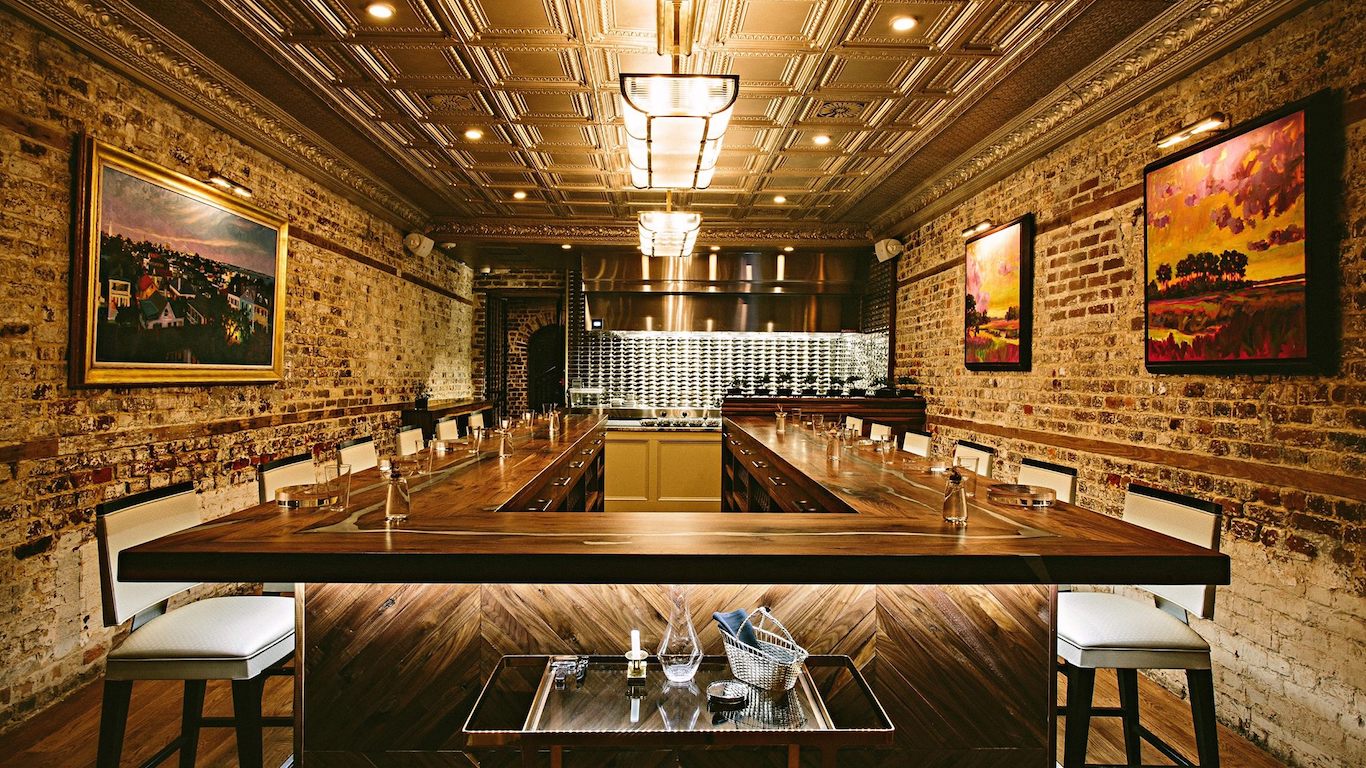
South Carolina: McCrady’s
> Location: Charleston
Top-rated Southern chef Sean Brock established the modern-day reputation of this place — which dates its origins to McCrady’s tavern, opened in 1778 — as one of the country’s leading restaurants with his avant-garde tasting menus (Brock left the restaurant in 2018). At the end of April, David Howard, president of Neighborhood Dining Group, which owns the restaurant, issued a statement that said part: “we’ve come to the difficult decision that McCrady’s … will no longer be viable in this changed business environment.”
[in-text-ad-2]
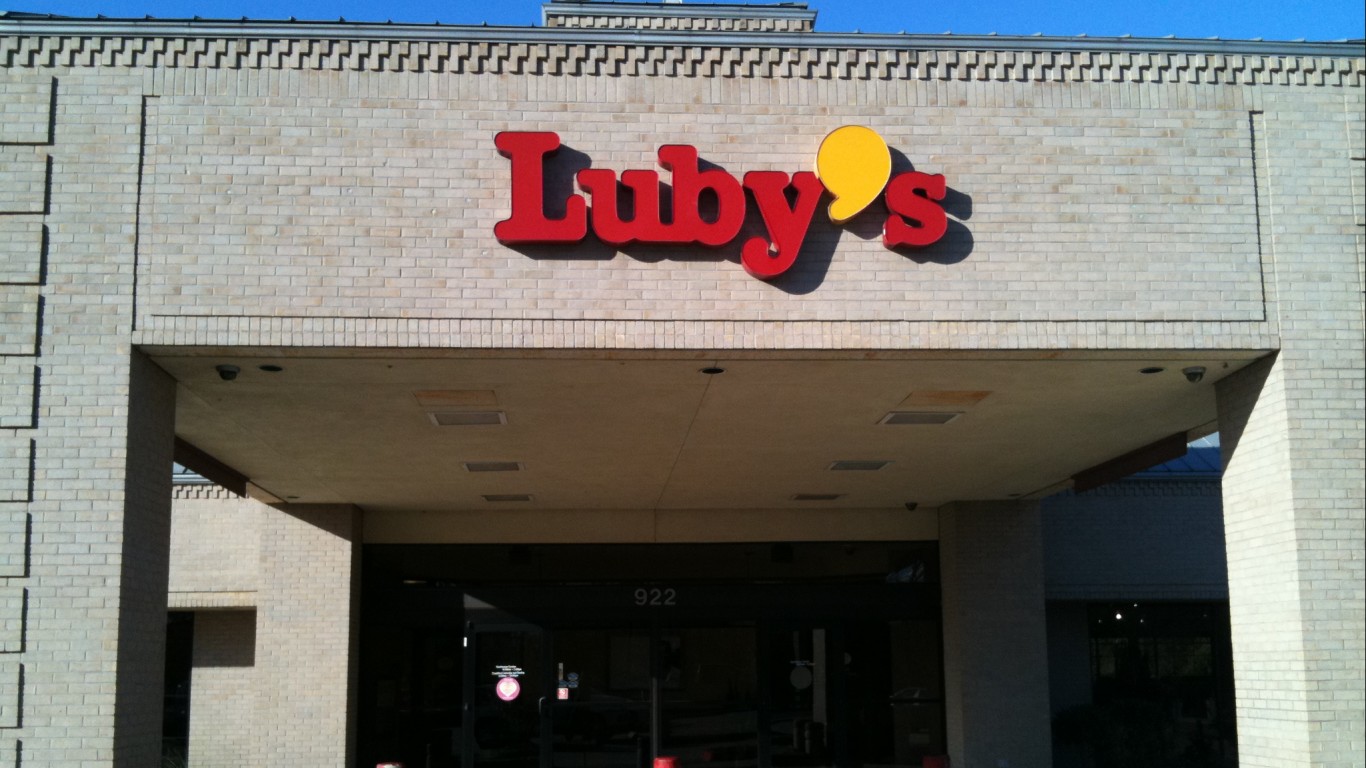
Texas: Luby’s
> Location: Various
For 73 years, this iconic cafeteria chain served chicken-fried steak and other comfort food at affordable prices to Texans (Sunday lunches were particularly popular). Having closed temporarily in March, the owners announced in June that the operation was for sale. Finding a buyer for Luby’s, wrote the company’s CEO and president, Christopher J. Pappas, at the time “will maximize value for our stockholders, while also preserving the flexibility to pursue a sale of the company should a compelling offer that delivers superior value be made.” A buyer was not forthcoming, however, and on Sept. 8, it was announced that the chain’s assets would be liquidated. Some 60 locations across the Lone Star State were affected.
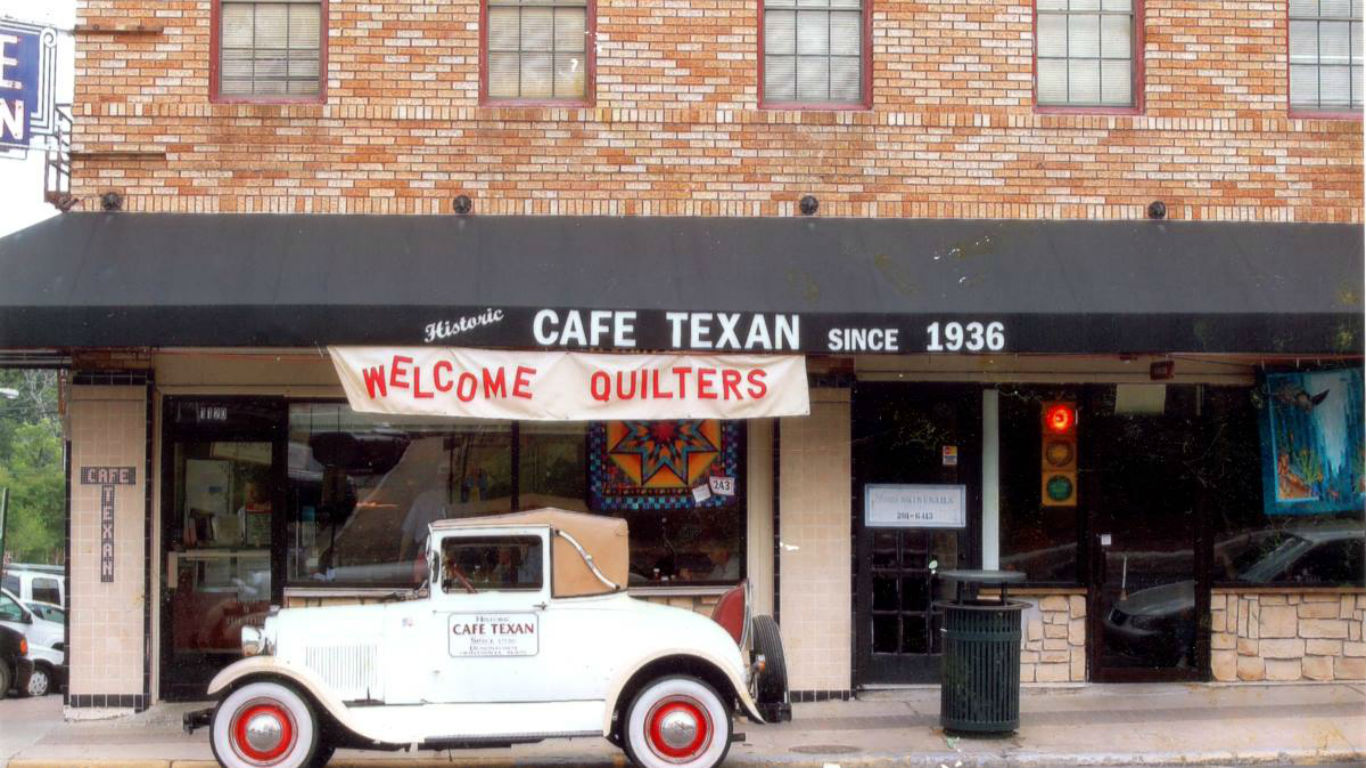
Texas: Café Texan
> Location: Huntsville
Said to be the oldest café in Texas still operating at its original location, this 83-year-old institution north of Houston gave up the ghost in late July. Owner John Strickland told The Huntsville Item that he had remained closed for months out of concern for the health of his customers, many of whom were seniors, and of his staff. However, he said, “I had not intended to close it permanently.” Having realized that he would be unable to reopen safely in the foreseeable future, he sold the building, which will apparently be turned into a museum.
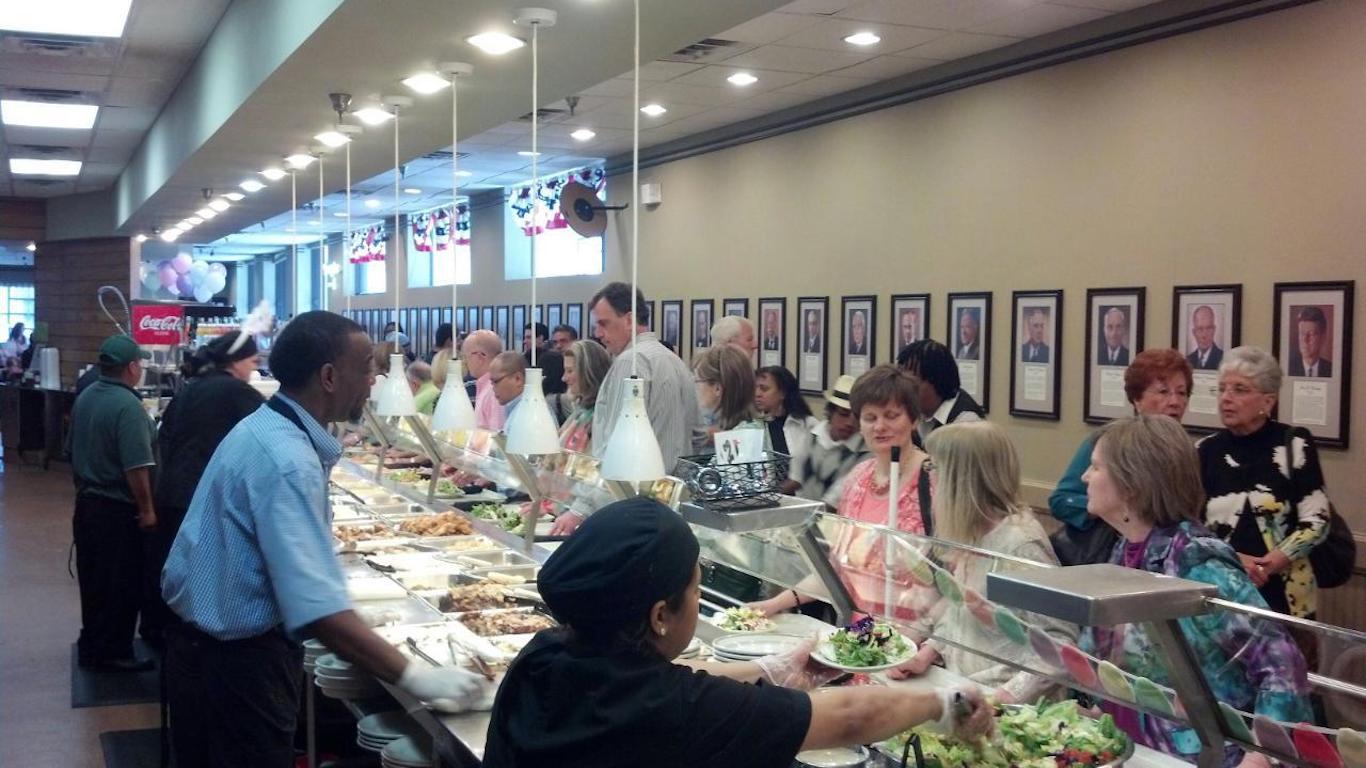
Texas: Highland Park Cafeteria
> Location: Dallas
Opened in 1925, this casual eatery — famous for its zucchini muffins, chicken-fried steak, and homemade pies — closed down for good in May, with its furnishings, equipment, and memorabilia sold at auction. Addressing its customers, a statement on the restaurant website said, “We would love to have a farewell event to honor you and our faithful employees, but due to the current restrictions, we won’t be able to do so.” The statement left open the possibility that the place might be revived in the future, adding “So, making no promises — but who knows? Zucchini Muffins may one day make a comeback!”
Get Ready To Retire (Sponsored)
Start by taking a quick retirement quiz from SmartAsset that will match you with up to 3 financial advisors that serve your area and beyond in 5 minutes, or less.
Each advisor has been vetted by SmartAsset and is held to a fiduciary standard to act in your best interests.
Here’s how it works:
1. Answer SmartAsset advisor match quiz
2. Review your pre-screened matches at your leisure. Check out the advisors’ profiles.
3. Speak with advisors at no cost to you. Have an introductory call on the phone or introduction in person and choose whom to work with in the future
Thank you for reading! Have some feedback for us?
Contact the 24/7 Wall St. editorial team.
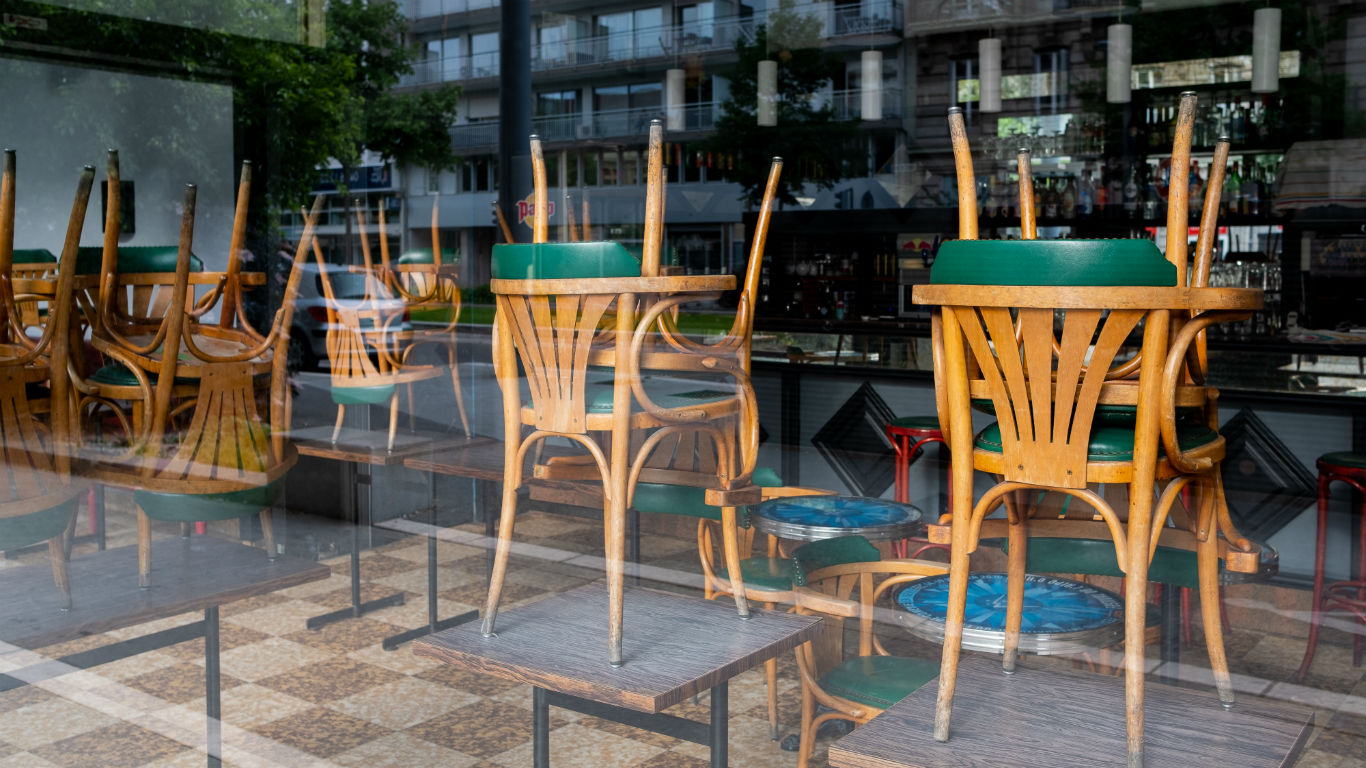 24/7 Wall St.
24/7 Wall St. 24/7 Wall St.
24/7 Wall St.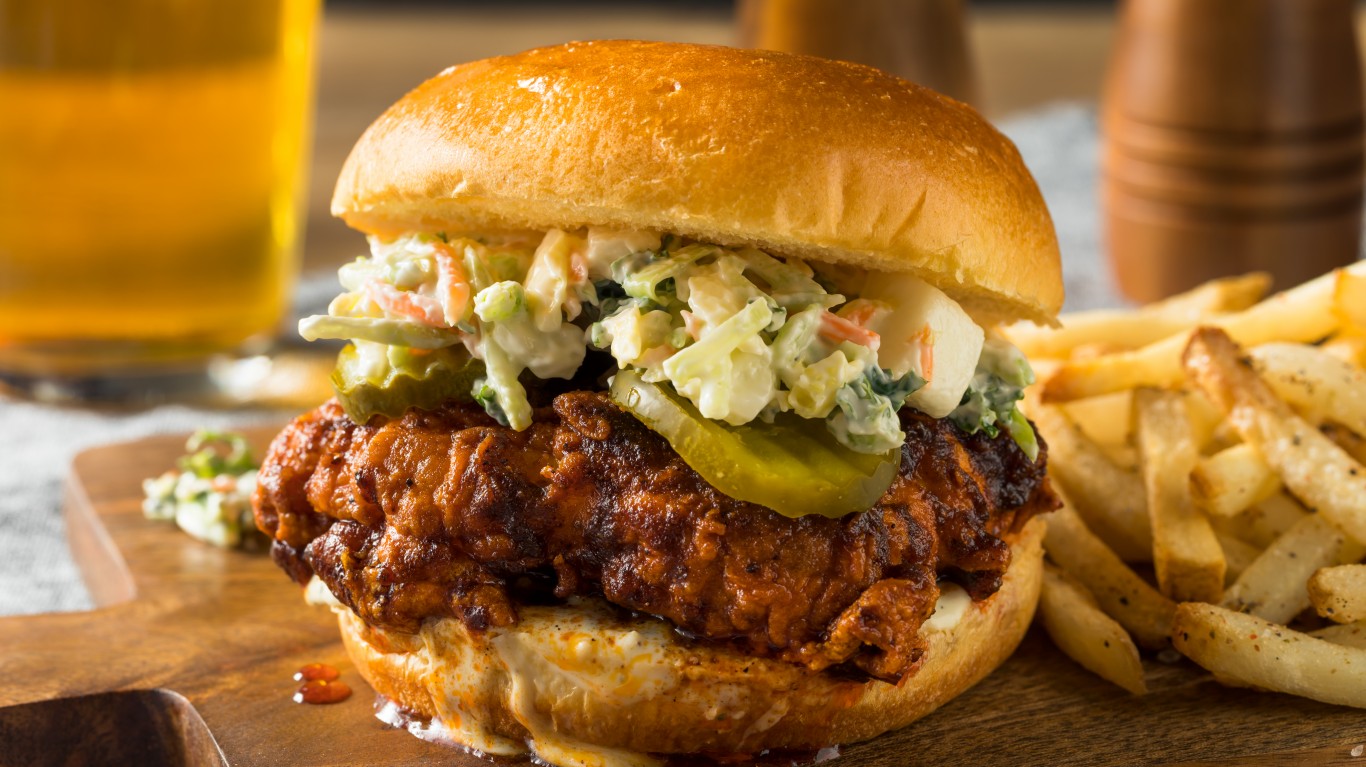 24/7 Wall St.
24/7 Wall St.

